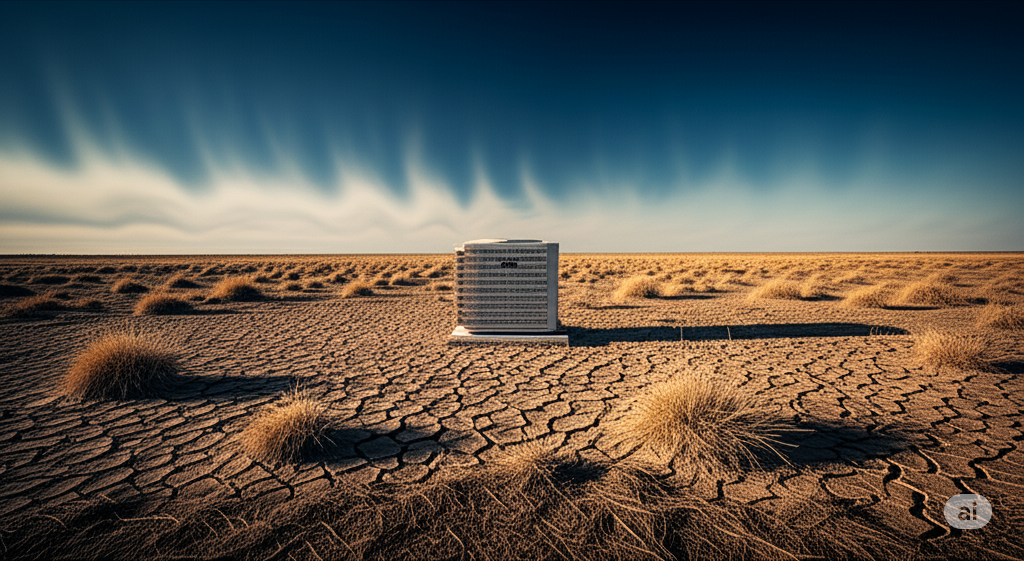Beat the Heat: HVAC Prep for Lubbock Rentals
Beat the Heat: HVAC Prep for Lubbock Rentals
Featuring Comfort Masters Heating and A/C
August in West Texas doesn’t give HVAC systems a break. With triple-digit temps stretching for days, small maintenance issues can quickly turn into expensive emergencies.
Whether you’re managing a multifamily community or single-family rentals, good prep now can mean fewer service calls, better resident retention, and less stress. Here's what works — plus a spotlight on Comfort Masters Heating and A/C, a trusted LAA vendor who knows how to keep Lubbock properties running cool.
Why HVAC Failures Hit Hard in Lubbock
Sustained heat means constant AC use. Most breakdowns start with:
-
Clogged filters
-
Dirty coils
-
Refrigerant problems
Repairs typically cost $225 to $1,400 per call. Full replacements run $2,300 to $7,000 or more — and those costs are climbing due to:
-
Aging equipment
-
Supply chain delays
-
Stricter refrigerant regulations
What’s changing: R-22 (Freon) was phased out in 2020. Systems still using it are costly to maintain and overdue for replacement. Newer systems using R-410A are now affected by reduced part availability, which is making timely repairs more difficult. Limited supply of components and a gradual regulatory phase-down under federal law will continue to drive repair costs higher over time.
Bottom line: Preventive maintenance is no longer optional. It’s the most cost-effective move you can make.
Five Summer Habits That Keep Systems Running
- Check Filters Monthly
In Lubbock’s heat and dust, filters clog quickly — especially in student-heavy or pet-friendly units. Replace filters at least once a month during summer to avoid reduced airflow and added strain on the system. Waiting for tenant complaints means you’re already losing efficiency. - Shut Down Frozen Units
If you see ice on refrigerant lines, shut the unit off immediately. Frozen coils often point to low airflow or refrigerant issues. Running a frozen system can burn out the compressor — turning a repair into a replacement. - Flush Condensate Drains Monthly
Clogged drain lines cause mold and water damage. Flush each line with vinegar and vacuum the outlet. Musty smells or ceiling stains below units are early signs something’s backing up. - Clear Outdoor Units
Keep a three-foot radius around each condenser unit free from weeds, grass, and debris. Gently hose down the coils and look for oily spots that signal a leak. Landscaping and airflow often go hand in hand. - Track Performance Trends
Log run times, air temps, and service calls. A supply-return temp difference of 15–20°F is normal. If a unit starts running longer than others or makes new noises, flag it before it fails.
Note: Manufacturers recommend keeping thermostats set at 70°F or higher during cooling season. Settings below 70 can increase system wear and shorten equipment life.
Prevention Beats Reaction — Every Time
A mid-season tune-up runs about $129 per unit. That’s a small price to avoid thousands in emergency repairs — and unhappy residents during the hottest time of year.
Preventive care:
-
Extends equipment life
-
Improves energy efficiency
-
Reduces turnover during peak leasing months
-
Helps prepare for changing refrigerant rules and part shortages
When to Call the Professionals
Some problems require licensed technicians. Don’t attempt DIY fixes for:
- - Refrigerant leaks or electrical issues
- Persistent cooling problems after filter changes
- Frozen systems or unusual noises
- Any work involving refrigerant handling
Comfort Masters Heating and A/C has worked Lubbock properties for over 20 years. They understand the urgency of rental maintenance and provide responsive service across multifamily and single-family housing.
**Contact:** Comfort Masters (806) 794-1000
The Reality Check
The best time to fix HVAC problems is before they happen. Smart seasonal maintenance and reliable contractor relationships keep residents comfortable, protect your investment, and reduce summer stress.
Planning beats panic every time—especially when it’s 105°F outside and your phone starts ringing.
Frequently Asked Questions (FAQs) for Property Managers
Q1: How often should I schedule professional HVAC maintenance for my rental units in Lubbock?
A1: To ensure optimal performance and prevent costly breakdowns, it's highly recommended to schedule professional HVAC maintenance at least twice a year: once in the spring before summer heat sets in, and again in the fall before winter. This proactive approach catches minor issues before they become major problems and is especially critical given Lubbock's extreme temperatures.
Q2: What's the typical response time for emergency AC repairs in Lubbock, and what constitutes an "emergency"?
A2: While specific legal definitions for emergency response times can vary, an AC breakdown in extreme Lubbock summer heat (e.g., when temperatures are consistently above 85-90°F) is generally considered an emergency due to habitability concerns. Most reputable HVAC contractors aim for 24-48 hour response times for these critical situations. An emergency is typically defined as a complete loss of cooling, rendering the unit uninhabitable or posing a health risk, particularly for vulnerable residents.
Q3: Who is responsible for changing air filters – the tenant or the property manager/onsite manager?
A3: While the property manager/onsite manager is ultimately responsible for maintaining the HVAC system, it's a common and effective practice, often stipulated in lease agreements, that tenants are responsible for regularly changing air filters. Given Lubbock's dust, this should be communicated clearly upon move-in, including the type of filter and a recommended frequency (e.g., every 1-3 months, or more often). Regular filter checks should still be part of your routine property inspections.
Q4: My rental unit has an older AC system that uses R-22 refrigerant. What should I know about repairs and replacements?
A4: The production and import of new R-22 (Freon) largely ceased in 2020. While reclaimed R-22 is still available for repairs, its cost has significantly increased, and its availability will continue to diminish. If an R-22 system experiences a major issue like a significant leak or compressor failure, it's almost always more cost-effective in the long run to replace the entire unit with a new, energy-efficient system that uses modern, more readily available refrigerants like R-410A. This avoids expensive, temporary fixes and improves overall energy efficiency for your residents.
Q5: How can a property manager tell if an AC unit needs to be replaced rather than just repaired?
A5: Several key indicators suggest an AC unit might be due for replacement:
-
Age: Systems generally last 10-15 years. If your unit is approaching or surpassing this age, replacement is often more sensible than repair.
-
Frequent Breakdowns: If you're consistently paying for repairs every summer, the cumulative cost can quickly outweigh the investment in a new unit.
-
High Energy Bills: An aging, inefficient unit will work harder and consume more power to cool, leading to higher utility costs.
-
Major Component Failure: A failed compressor or a significant refrigerant leak, especially in an older R-22 system, typically justifies a full system replacement.
-
Poor Performance: If the unit struggles to cool the property adequately, even after minor repairs, it might be undersized for the space or simply at the end of its functional life.

